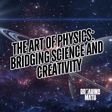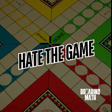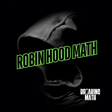
1: Forbidden Formulas (Elitism in Math)
From Pythagoras to Einstein, from the banks of the Nile to the streamlined curves of the Large Hadron Collider, math has shown itself again and again to be fundamental to the way that humans interact with the world. Then why is math such a pain for so many people? Our answer is simple: math is, and always has been, in one way or another, guarded as an elite skill. We visit the worlds that were shaped by math, the secrets people died for, the false gods created through this noble science, and the gradual chipping away of this knowledge by a people who have always yearned for this magical skill. So what is it? And how can we make it better?
Ways to support the show:
Help Support The Podcast by clicking on the links below:
- Try out ZenCastr w/ 30% Discount Use my special link to save 30% off your first month of any Zencastr paid plan
- Patreon
- YouTube
- Breaking Math WebsiteEmail us for copies of the transcript!
[Featuring: Sofía Baca, Gabriel Hesch; Amy Lynn, Ian McLaughlin]



















